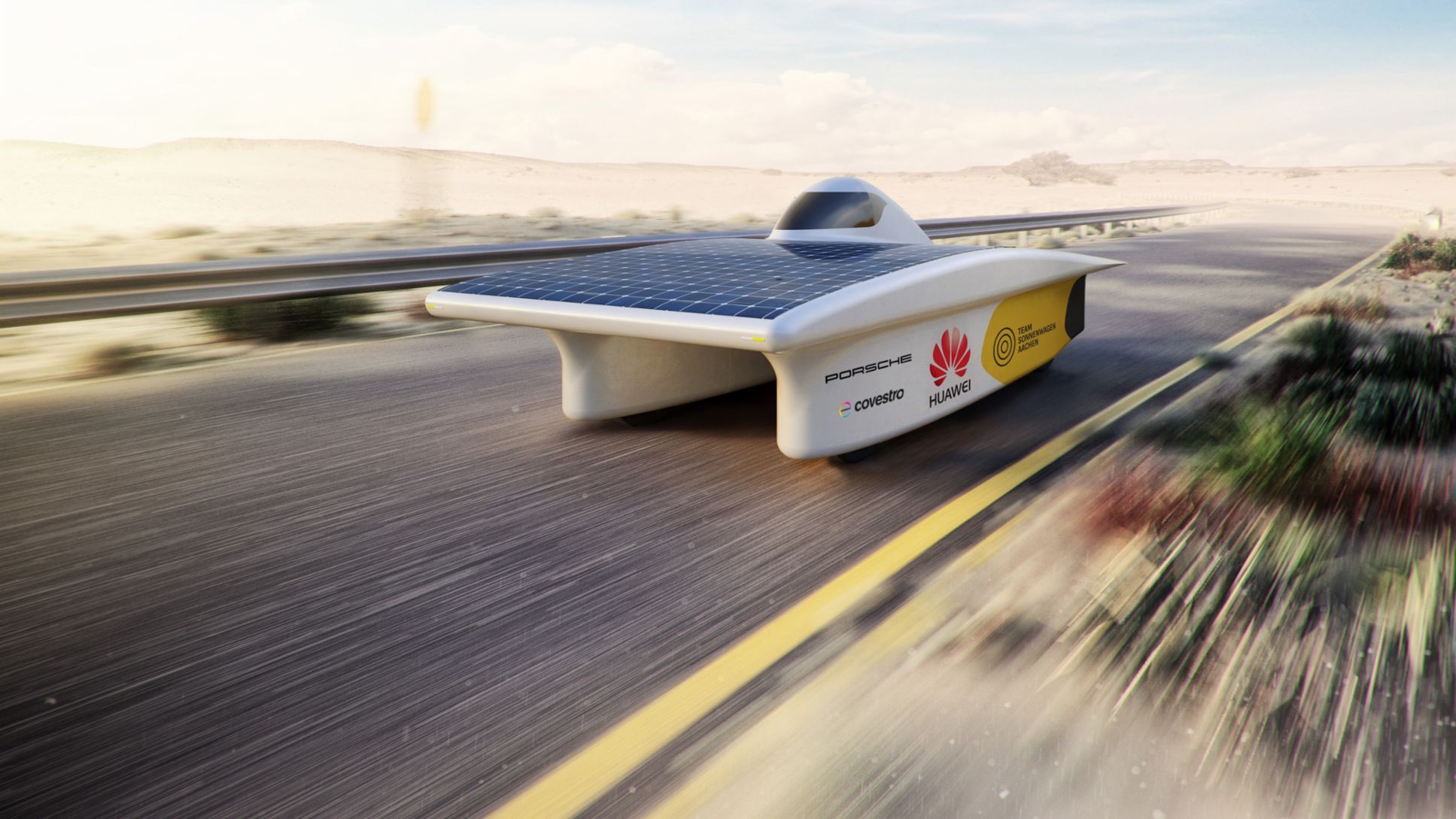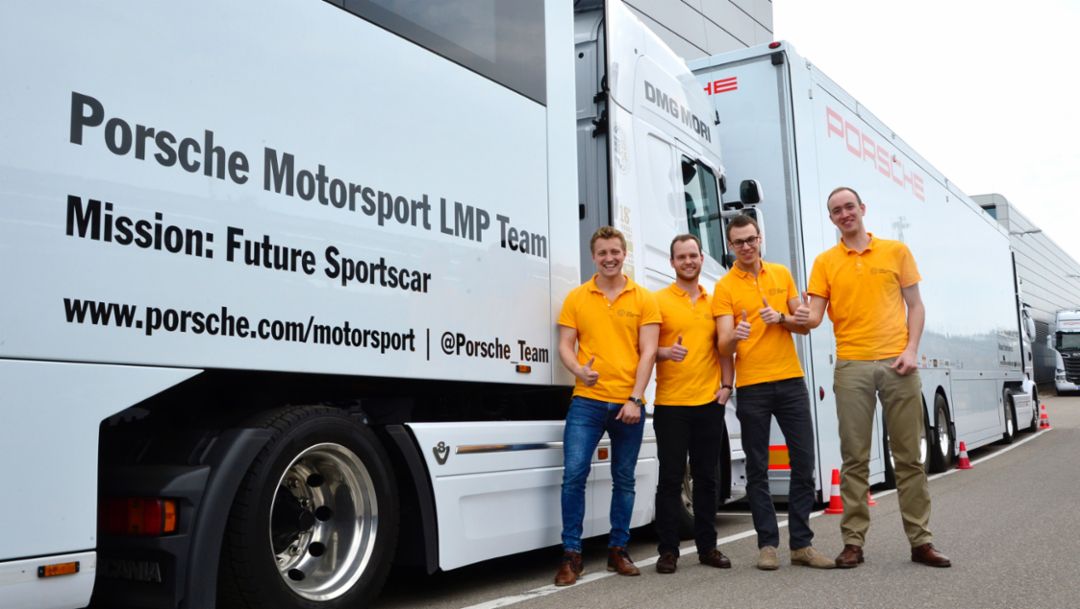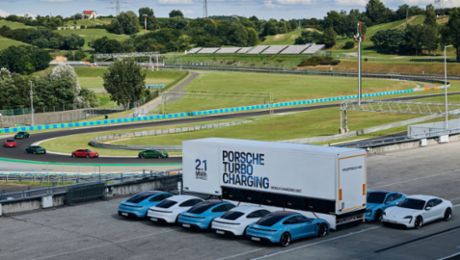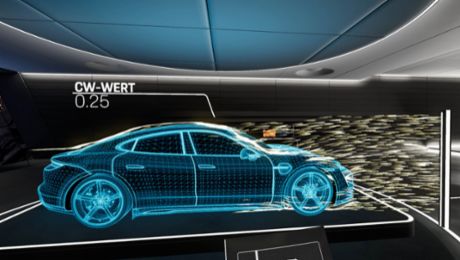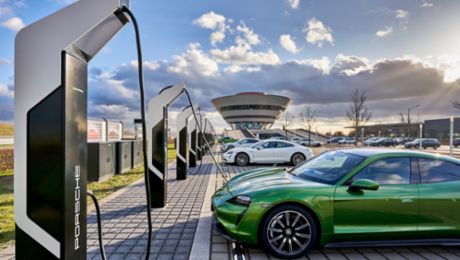The “Sonnenwagen” team from RWTH Aachen University is the only German team this year to be taking part in the “Challenger Class” in the toughest race for solar-powered vehicles. Porsche is providing this ambitious project with both financial support and expertise. “The sustainable use of renewable energies is one of the greatest challenges of our time”, says Andreas Haffner, Member of the Executive Board for Human Resources and Social Affairs at Porsche AG. “The development of an emission-free solar-powered racing car by students at RWTH Aachen alone represents a bold undertaking. Supporting this research approach is very important to us.”
For the next three days, the Sonnenwagen team’s futuristic-looking solar-powered vehicle will be on display in the Nürburgring Boulevard. The 30th “Bridgestone World Solar Challenge” will take place in Australia from October 8 to 15. The race covers 3,022 kilometres along the Stuart Highway through the Australian Outback from Darwin to Adelaide.
Andreas Haffner had the following to say: “We want to play an active role in shaping the future of the sports car. To do so, we need exactly this kind of young people, full of courage and pioneering spirit, and who are willing to break the mould. These are values that are also firmly rooted in our company culture.” At the invitation of the Stuttgart-based sports car manufacturer, Hendrick Löbberding, first chairman of the Sonnenwagen Aachen e.V. association, and his core team have already visited Porsche Motorsport on two occasions.
The first time the team visited the Porsche motorsport centre in Flacht, the specialists from the three-time Le Mans winning team spent half a day with the students from Aachen, focussing on the subjects of the vehicle body, electrics, simulation, wind tunnel tests, organising air freight, as well as team management. During the second visit, coinciding with the FIA World Endurance Championship race at Spa in Belgium, the young designers of the solar-powered racing car learnt all about professional weather observation and race strategy. This combination plays a key role in the Australian Solar Challenge as the sun is the only available source of energy.
“Just like us, the Aachen students will be pushed to the absolute limit when developing their racing car. The key issues surrounding lightweight construction, cooling, efficiency, powerful electric drive and aerodynamics correspond with the requirements of our Le Mans victor, the 919 Hybrid”, explains Andreas Seidl, Team Principal of the Porsche LMP Team. And on the agenda for the Sonnenwagen team’s next visit to the Development Centre in Weissach in August – wind tunnel tests.
Info
You can follow the progress of the project on the Aachen-based team’s Facebook page at facebook.com/sonnenwagen. For information about the race, visit the official homepage of the World Solar Challenge: www.worldsolarchallenge.org/.
Porsche’s support for the “Sonnenwagen” project is just one of many of its commitments in the areas of research, education and promotion of talent. Porsche supports many such initiatives, including the “Femtec” career platform for women, the “Formula Student” design competition and the “Jugend gründet” business plan game.
